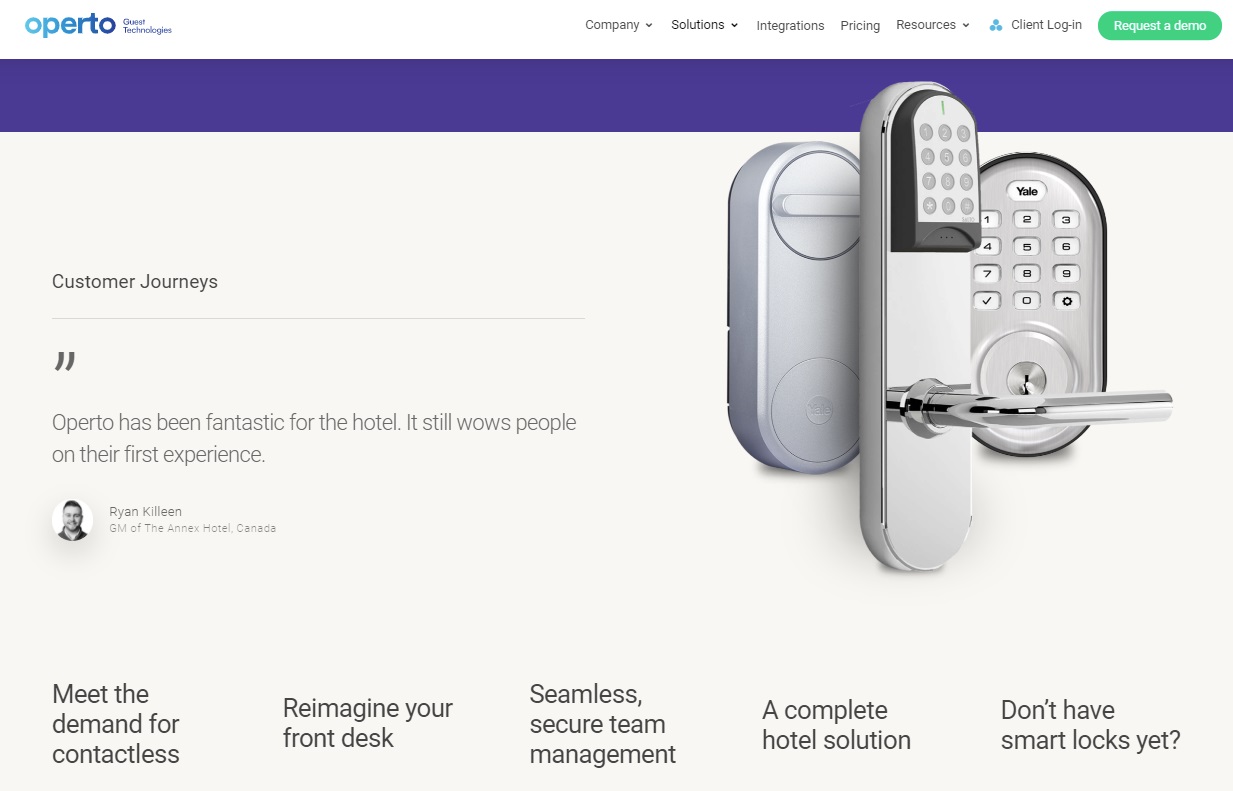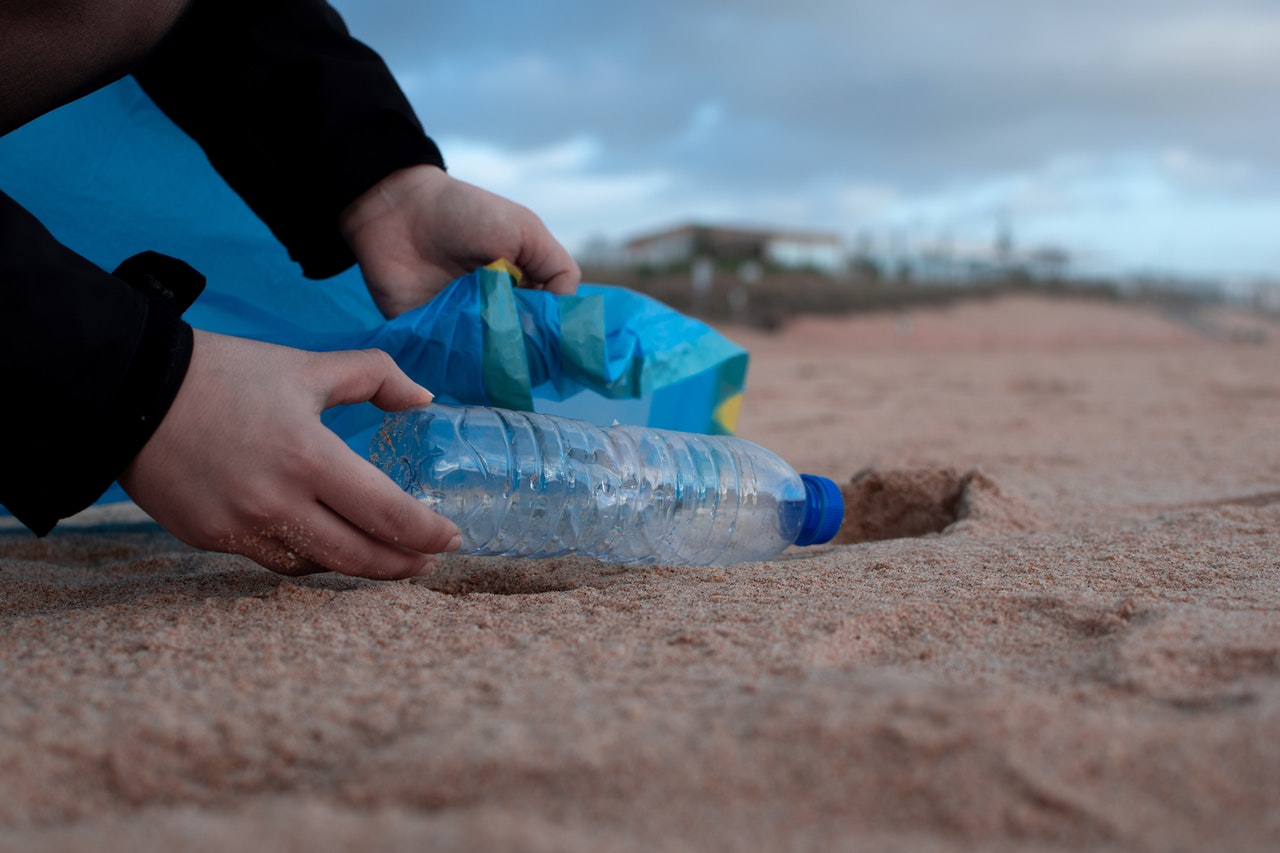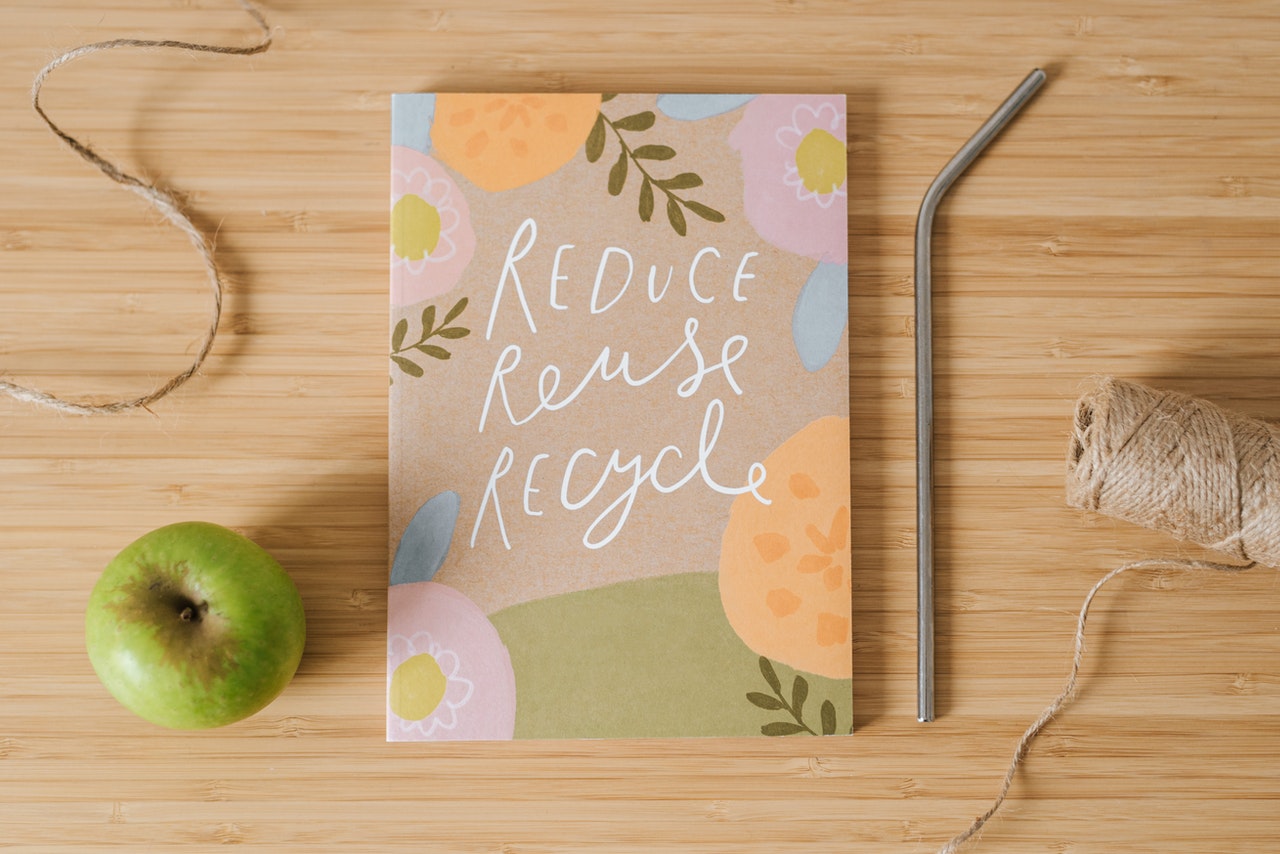Making your hotel more eco-friendly is more than just a fad; it’s here to stay. And rightly so.
Even a cursory look at the stats shows why it’s so important to start making changes now.
Worldwide, the tourism industry accounts for almost one-tenth (8%) of greenhouse gas emissions, a “world-first” paper published in the scientific journal Nature Climate Change found, with the US one of the biggest contributors globally (along with China and Germany).
And a study by UK national charity Waste and Resources Action Programme (WRAP) showed that the UK’s hotel industry produces more than 319,339 tons of waste each year, including 87,082 tons of food waste, partly due to serving up too-large portions, or from insufficient food storage facilities. And that’s just the UK.
As co-author of the Nature Climate Change study, Dr. Ya-Yen Sun, said, a move towards “low-impact” tourism will be crucial for the industry in the coming years.
It’s clear: making your hotel eco-friendly is more than just “a trend”: it’s a necessity.
But even if you’re aware of how important the issue is, the reality of making the switch in practice can feel more than a little daunting.
That’s why in this post we’ll cover:






Why hotels should reduce their impact on the environment
Waste and environmental impact is a major concern in hospitality right now, and with stats like the above, it’s easy to see why.
But going green can also help you save money, please guests, improve your hotel offer overall, and build better relationships with the local community, too. Everybody wins.
Keeping your finger on the pulse of the industry?
Going green saves money
Reduced energy costs are a major incentive; think energy-saving light bulbs, turning down the AC when not in use, and reducing the amount of water needed for each toilet flush or washing machine load.
Guests prefer eco-friendly hotels
Not only that, but guests are starting to prefer eco-friendly hotels.
Booking.com research shows that 73% of global hotel visitors today would prefer an eco-sustainable hotel over a traditional one, up from 62% in 2016. A full 96% of global travelers admit that sustainable travel is important, and 76% want to make more sustainable travel choices in the future.
In fact, Booking.com says it expects to see travelers take on a more eco-conscious mindset in 2021 and beyond, as the effects of Covid have increased people’s awareness of the connections between local communities, and their own impact on their immediate environment.

Credit: Booking.com
7 ways hotels can reduce their impact on the environment
But while the effects of climate change—and the expectations of modern guests—may be huge, even small tweaks to your hotel operations can make a real difference, and you don’t have to transform everything overnight to start seeing results.
Implementing small changes where you can is a better way to start than waiting until you can afford—or find the time—to make larger shifts.
1. Use integrated energy-saving technology

Credit: operto.com
Switching your hotel operations to automated digital systems is a great place to start when it comes to going green.
Connecting your entire hotel operation into one system, such as via Operto, means you can keep track of when guests are coming and going with occupancy monitoring, and automated hotel energy control; turn down the AC when it’s not in use; and reduce heat and lights too—saving up to 30% in energy bills alone.
Making everything automated—from booking confirmation to contactless check-in to receipts to guidebooks to reports—also means reducing paper and printer ink use (and frustrating admin) by almost 100%.
Related post: The 5 Most Highly Rated Hotel Management Software For Modern Hotels
2. Use keyless entry

Credit: operto.com
Did you know that Hilton Hotels estimated that it saved more than 80,000 pounds (40 tons) of plastic in five years by replacing plastic key cards with digital key technology, across 4,250 properties? With such massive numbers, even a smaller, boutique hotel with just a handful of guest rooms can make a significant difference.
Using digital hotel keys also cuts down on costs in other ways—such as removing the expense, materials, time, and resources required to replace lost or stolen keys or cards, and reduced operating costs when it comes to front desk staff too.
Only truly keyless entry—using tools such as Operto, which doesn’t rely on physical keys, key cards, or even smartphones to work—and which uses unique codes on keypads, can help reduce energy use and excess plastic and cut down on needless material use.
Related post: Hospitality Case Study: From Banker to Host to Hotel Owner
3. Recycle, reuse, and reduce waste

Credit: Villa-in-the-vineyard.com
Using recyclable and reusable materials for guests where possible, as well as reducing single-use plastic cups, straws, bottles, and toiletries can make a huge difference.
You might offer guests mini toiletries only on request or use larger dispensers, give out plastic-free tea bags, or offer guests refillable water stations and glass bottles, rather than handing out plastic bottles.
Bob Garner, of Italian green hotel Casal dei Fichi, explained on a recent Touch Stay webinar that his business offers each guest a reusable, metal bottle, made by a responsible company, on arrival—allowing them to own and reuse it during their stay.
Guests can take the bottle away for further use too, reducing single-use plastic bottles even more.
And major chain Marriott found that offering toiletries only on request rather than as standard, allowed it to eliminate 500 million small plastic bottles per year.
An increasing number of companies recycle and repurpose soaps and toiletries from hotels too, including UK firm Clean Conscience and US Hilton Hotels partner, NGO Clean The World.
Hotels can also improve their green credentials without totally changing cleaning habits, by switching up harsh chemicals for more eco-friendly, organic cleaning products too.
As Nikki Mattei, owner of Italian eco-villa Villa in the Vineyard and Sustainability Marketing Strategist at eco-travel app Wayaj has explained, her company cycles through 10-liter ceramic containers that are refilled and cleaned regularly, to avoid single-use plastic while still ensuring cleanliness between guests.
Guests can help by separating, and even composting, their waste if you make it easy with discreet recycling bins, and doing the same for staff in back-of-house areas can make it even more consistent.
4. Cut down on water and energy consumption

Credit: Pexels / Karolina Grabowska
The first step here is to ask guests if they mind using sheets and towels for longer time periods, and ask them if they are OK with less frequent room cleaning.
This can save on water and detergent and chemical use, and help guests feel as though they are more at home, and are contributing to sustainability too.
Other options include installing water-saving showerheads and faucets; and eco-friendly, low-water washing machines.
Increasing numbers of energy suppliers now use renewable sources, and switching to one of these can help your hotel contribute to sustainability without any adverse effects on service.
In the long-term, you might even choose to make further investments, such as revamping your insulation and even installing wind turbines and solar panels.
5. Buy local, go organic, and cut down on meat and dairy

Credit: Pexels / Zen Chung
Reaching out to local businesses—especially farmers, food producers, and artisan creators—can reduce your carbon footprint while significantly improving your offer.
Guests love to feel as though they are enjoying products from the local area, and you can celebrate and publicize nearby businesses by offering in-room items such as handmade soap, towels, robes, or snacks; and adding specialist local, land-friendly products to your menus.
Not only does this save on air and road miles for the transportation of goods—massively reducing carbon footprint and supporting the seasonality of crops—it also gives back to the local economy and employs more homegrown workers too, which helps improve the standing of your hotel in the area and fosters create community relationships.
Partnering with great quality local producers, also means you can boost eco-credentials by reducing your use of dairy and meat products, and replace them with great quality, local, and seasonal (and perhaps even organic) produce that tastes just as good, and literally doesn’t cost the earth.
As Bob Garner said: “We have a philosophy and a belief that…when we’ve got a choice and we’re looking at two suppliers, we’ll look at those companies and ask, what are they doing [to give back]?”
He explained that, for example, his hotel uses a toilet paper company (quirkily named Who Gives A Crap) that not only uses sustainable materials but also donates 50% of their profits to building safe toilets in the developing world, passing on those efforts even further.
6. Encourage green transport options

Credit: Pexels / Pixabay
With one of tourism’s major pollution outlays due to long-distance travel, it makes sense to encourage your staff and guests to travel sustainably once they arrive.
Encourage guests to use public transport by giving easy directions, and explain in simple terms how to get around your town’s best networks; whether that’s the bus, tram, e-scooter, or train. For guests who drive electric vehicles, hotels like The Wyman are even offering EV charging stations. Offer maps and even provide discounts or the first sets of tickets to make it effortless.
Include walking directions in your guidebooks, offer discounts for the hire of local scooters or bikes, and offer your guests safe and secure places to store their own bikes, just as you would if you had a guest car park.
Staff can also take part. Offer incentives for carpooling and public transportation use (if practical and safe); and offer financial help to buy and maintain bikes and helmets, to encourage staff to ride or scooter in, rather than drive.
7. Support local causes

Credit: Pexels / Marta Ortigosa
Making your business more sustainable isn’t just about reducing bottled water.
It can also be done in more subtle, indirect ways; such as donating a proportion of your nightly revenue, or a proportion of the cost of a certain meal or dish on your menu, to local animal welfare or environmental charities.
Team up with local environmental efforts—for example, litter picking or beach clean-up operations—by donating funds or raising awareness of the event via marketing channels or in-room publicity, to help publicize the organizers’ actions, while also improving your reputation for supporting green causes among your guests and locals.
Frequently Asked Questions About Reducing A Hotel’s Impact On The Environment

Credit: Pexels / Anete Lusina
The future of eco-hospitality
We hope we’ve shown that sustainability in the hospitality industry isn’t just about washing fewer towels, removing mini toiletries, or making huge changes such as installing solar panels and eating only organic food.
It can apply throughout your operations from start to finish, including by using modern tools such as Operto: from saving paper via digital communication and contactless check-in to harnessing the power of smart devices to adjust the AC automatically and getting rid of wasteful keycards.
Every little helps the bottom line; and we know that when it comes to going green, small changes really add up.
Connect your operations
Are you ready to drastically reduce plastic and energy waste?
